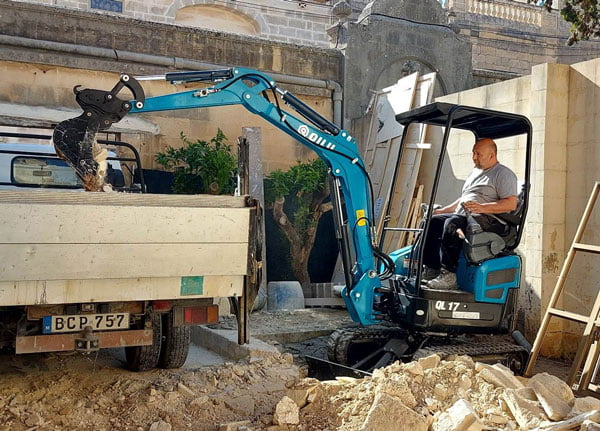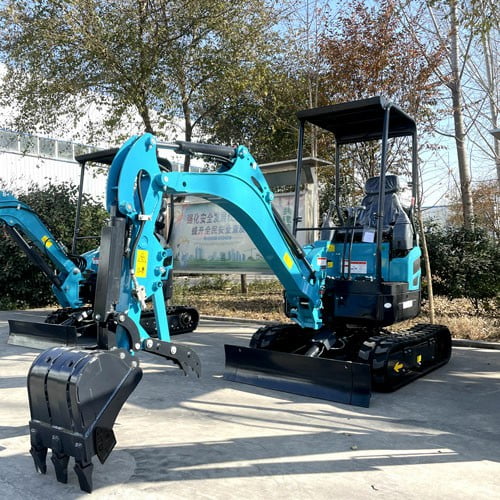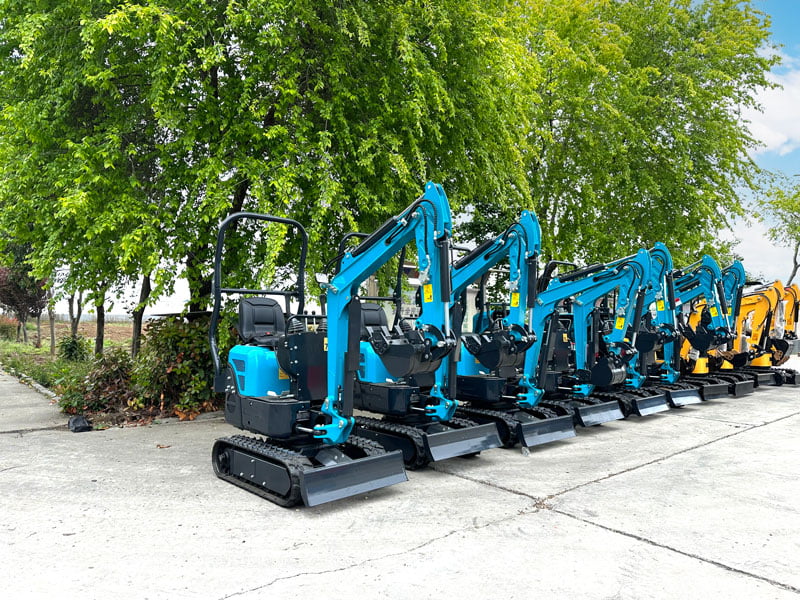Excavator teeth play a crucial role in the performance and efficiency of excavators. These powerful machines are widely used in construction, mining, and various other industries. While excavator teeth may seem like simple components, there are some fascinating secrets that you might not be aware of. In this article, we will uncover five secrets about excavator teeth that will leave you surprised and intrigued.
Table of Contents
- Introduction
- The Importance of Excavator Teeth
- Secret #1: Different Types of Excavator Teeth
- Secret #2: Wear and Tear on Excavator Teeth
- Secret #3: Proper Maintenance for Longevity
- Secret #4: Choosing the Right Excavator Teeth
- Secret #5: Impact of Excavator Teeth on Efficiency
- Conclusion
- FAQs
- Get Access Now
Introduction

Excavator teeth are the cutting tools attached to the bucket of an excavator. They are responsible for breaking and digging through tough materials such as soil, rocks, and concrete. Excavator teeth come in various shapes and sizes, designed to perform specific tasks efficiently. In the following sections, we will explore the importance of excavator teeth and unveil five secrets that will enhance your understanding of these critical components.
The Importance of Excavator Teeth
The importance of excavator teeth cannot be overstated when it comes to excavation operations. These small but crucial components play a significant role in the overall performance and efficiency of excavators. Excavator teeth are specifically designed to handle the demanding tasks of breaking and digging through various materials, including soil, rocks, and concrete. They serve as the primary cutting tools attached to the bucket of an excavator, enabling it to penetrate the ground effectively and complete excavation tasks with precision.
One of the key reasons why excavator teeth are of utmost importance is their direct impact on the digging capacity and efficiency of the machine. The design and quality of the teeth significantly influence the excavator’s ability to break through tough surfaces and extract materials effectively. Well-maintained and appropriately selected teeth can improve productivity by allowing for faster digging speeds and reduced fuel consumption. This not only saves valuable time but also reduces operational costs in the long run.
Moreover, excavator teeth also contribute to the overall durability and longevity of the machine. They bear the brunt of the excavation process, continuously encountering abrasive materials and enduring the forces generated during digging. As a result, they are prone to wear and tear over time. However, by implementing proper maintenance practices, such as regular cleaning and inspection, operators can identify and address any issues with the teeth promptly. This preventive approach helps extend their lifespan and ensures optimal performance during excavation tasks.
Another crucial aspect of excavator teeth is their versatility. There are various types of teeth available in the market, each designed for specific applications and ground conditions. From standard teeth for general digging to specialized teeth for rocky terrain or heavy-duty excavation, the options are vast. Choosing the right type of teeth for a particular job is essential for maximizing the machine’s efficiency and productivity. Matching the teeth to the task at hand improves digging performance, reduces wear on the teeth and other components, and ultimately enhances the overall excavation process.
Secret #1: Different Types of Excavator Teeth
There is a wide range of excavator teeth available in the market, each designed for specific applications. Some common types include standard teeth, rock teeth, heavy-duty teeth, and tiger teeth. Standard teeth are versatile and suitable for general digging tasks, while rock teeth are designed for enhanced durability when working with rocky terrain. Heavy-duty teeth are ideal for heavy-duty excavation, and tiger teeth offer superior penetration when dealing with hard-packed soil.
Secret #2: Wear and Tear on Excavator Teeth
Excavator teeth undergo significant wear and tear during their lifespan. Continuous digging, exposure to abrasive materials, and impacts with hard surfaces can cause them to wear down or break. Regular inspection and timely replacement of worn or damaged teeth are essential to maintain the efficiency and performance of the excavator.
Secret #3: Proper Maintenance for Longevity

Proper maintenance is crucial for prolonging the lifespan of excavator teeth. It includes routine cleaning, inspection, and lubrication. Regularly removing debris and dirt from the teeth and bucket can prevent premature wear. Lubrication ensures smooth operation and reduces friction, preventing excessive wear and extending the teeth’s life.
Secret #4: Choosing the Right Excavator Teeth
Selecting the right excavator teeth is vital for maximizing performance and efficiency. Factors such as the type of material being excavated, the ground conditions, and the desired productivity should be considered. Choosing teeth that match the specific requirements of the job can significantly enhance the excavator’s performance and reduce downtime.
Secret #5: Impact of Excavator Teeth on Efficiency

The condition and quality of excavator teeth directly affect the efficiency of the machine. Worn-out or inefficient teeth can result in decreased digging capacity, increased fuel consumption, and higher operating costs. By ensuring the teeth are in optimal condition, operators can improve productivity, reduce fuel consumption, and lower maintenance expenses.
Conclusion
Excavator teeth are vital components that greatly influence the performance and efficiency of excavators. By understanding the secrets associated with these teeth, operators and contractors can make informed decisions regarding their selection, maintenance, and replacement. Choosing the right type of teeth, conducting regular maintenance, and prioritizing efficiency will contribute to successful excavation operations.
FAQs
Q1: How often should excavator teeth be replaced?
Excavator teeth should be replaced when they show signs of significant wear or damage. Regular inspections are necessary to determine the condition of the teeth and ensure timely replacement.
Q2: Can I use the same type of excavator teeth for different materials?
While some types of teeth are versatile, it is generally recommended to choose teeth specifically designed for the material you are excavating. Different teeth are optimized for different tasks and ground conditions.
Q3: How can I extend the lifespan of excavator teeth?
Regular cleaning, inspection, and lubrication can help extend the lifespan of excavator teeth. Prompt replacement of worn or damaged teeth is also crucial for optimal performance.
Q4: What are the consequences of using worn-out excavator teeth?
Using worn-out teeth can result in decreased digging capacity, increased fuel consumption, and higher operating costs. It can also lead to reduced efficiency and productivity.
Q5: Where can I find high-quality excavator teeth?
High-quality excavator teeth can be sourced from reputable manufacturers, suppliers, or dealers specializing in construction equipment and spare parts.




